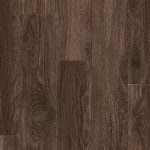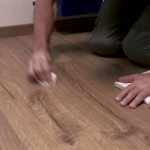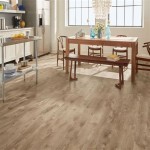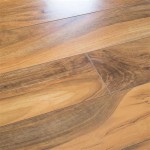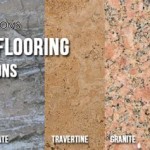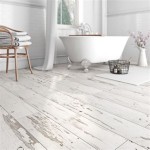Cork Flooring for Bathrooms: Pros and Cons
Cork flooring has become a popular choice for bathrooms due to its unique properties and aesthetic appeal. However, understanding the pros and cons is crucial before making a decision. This article provides an in-depth analysis of cork flooring for bathrooms, highlighting its advantages and potential drawbacks.
### Pros of Cork Flooring:1. Water Resistance:
Contrary to popular belief, cork is naturally water-resistant due to its cellular structure filled with air pockets. Proper sealing and maintenance can further enhance its resistance, making it suitable for areas exposed to moisture, such as bathrooms.2. Comfort and Warmth:
Cork flooring has excellent thermal insulation properties, providing warmth and comfort underfoot. Its cushioned texture also reduces leg and back fatigue, making it an ideal choice for bathrooms where standing or walking barefoot is frequent.3. Sound Absorption:
Cork's cellular structure acts as a natural acoustic insulator, absorbing sound waves and reducing noise levels. This feature makes cork flooring beneficial in bathrooms, where noise from water flow or other activities can be bothersome.4. Hypoallergenic and Anti-microbial:
Cork flooring does not harbor allergens or dust mites, making it suitable for individuals with allergies or respiratory issues. Additionally, its anti-microbial properties inhibit the growth of mold and mildew, promoting a healthier indoor environment.5. Durability and Longevity:
Cork flooring is incredibly durable and long-lasting. When properly maintained, it can withstand heavy foot traffic, wear, and tear. Its self-healing properties allow minor indentations to gradually disappear over time, ensuring a resilient surface. ### Cons of Cork Flooring:1. Limited Color and Pattern Options:
While cork flooring is available in a range of natural tones, the color and pattern options are limited compared to other flooring materials. Its unique texture may not appeal to all design preferences.2. Potential for Fading:
Direct sunlight can cause cork flooring to fade over time. However, protective sealants and UV treatments can minimize this effect and prolong the flooring's longevity.3. Cost:
Cork flooring can be more expensive than some other flooring options, such as vinyl or laminate. Its unique properties and durability come with a slightly higher price tag.4. Susceptibility to Scratches:
While cork flooring is durable, it can be susceptible to scratches from sharp objects. Proper maintenance and protective rugs can help mitigate this issue.5. Requires Regular Maintenance:
Cork flooring requires regular maintenance, including cleaning with specific products and reapplication of sealants. Failing to maintain the flooring properly can compromise its water resistance and durability. ### ConclusionCork flooring offers several advantages for bathroom applications, including water resistance, comfort, sound absorption, and hypoallergenic properties. However, it is essential to consider its potential drawbacks, such as limited color options, fading susceptibility, cost, and maintenance requirements. By carefully weighing the pros and cons, homeowners can make an informed decision about whether cork flooring is the best choice for their bathroom.
:strip_icc()/101676936-54a447362241481fb338be905602b612.jpg?strip=all)
Cork Floors For Bathrooms

Cork Flooring Pros And Cons Is It The Right Choice For You

Best Bathroom Flooring Cork Tile For Rest Of The House Icork Floor
Best Natural Floors For Bathrooms Naturlich Flooring

Cork Flooring Guide Specifics Pros Cons Fantastic Handyman Au

Doesn T Come With Wine The Pros And Cons Of Cork Floors

Best Bathroom Flooring Cork Tile For Rest Of The House Icork Floor

Will Cork Float For Your Bathroom Floor

Pros And Cons Of Cork Flooring Is It Right For You Bob Vila

All About Cork Flooring Atomic Ranch
Related Posts


